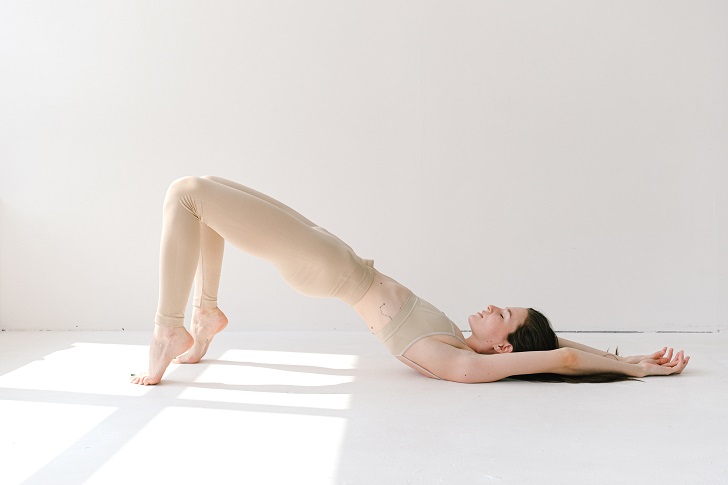Yoga, a practice that promotes physical strength, flexibility, and mental well-being, is often seen as an activity for the young and agile. However, the truth is that yoga is a transformative practice that can be enjoyed by individuals of all ages, including seniors.
In fact, as we age, the benefits of yoga become even more essential in maintaining our overall health and well-being. This article will explore the notion that you're never too old for yoga, highlighting the numerous benefits and considerations for seniors who embark on this remarkable journey.
Maintaining Physical Function and Mobility
As we age, maintaining physical function and mobility becomes increasingly important. Regular practice of yoga can help seniors improve balance, flexibility, and strength. Gentle asanas (poses) and modified movements specifically designed for seniors help keep the body active and supple, reducing the risk of falls and enhancing overall physical function.
Managing Chronic Conditions and Reducing Pain
Seniors often face various chronic conditions, such as arthritis, osteoporosis, and high blood pressure. Yoga can be an effective complementary therapy in managing these conditions and reducing pain. Gentle stretching, breathing exercises, and relaxation techniques practiced in yoga can provide relief, improve joint mobility, and promote overall well-being.

Jonathan Borba/ Pexels | Yoga is not a religion; it is a science of well-being
Enhancing Mental and Emotional Well-being
The aging process can bring challenges to mental and emotional well-being. Yoga offers seniors a space for mindfulness and self-reflection, helping to reduce stress, anxiety, and depression. Regular practice can enhance mood, boost self-esteem, and foster a positive outlook on life.
Promoting Social Connection and Community
Engaging in yoga classes provides seniors with an opportunity to connect with others and build a sense of community. Yoga studios, senior centers, and community centers often offer specialized yoga classes for seniors, creating a supportive and inclusive environment where individuals can form friendships, share experiences, and feel a sense of belonging.
Seek Professional Guidance
When starting a yoga practice as a senior, it is important to seek guidance from a qualified yoga instructor who has experience working with seniors. They can provide modifications, adaptations, and appropriate modifications for individual needs and physical abilities. Consulting with a healthcare professional before beginning any new exercise regimen is also advised.
Practice Mindful Movement
Seniors should approach their yoga practice with mindfulness and respect for their bodies. It is essential to listen to their bodies and practice within their own limits, avoiding strain or overexertion. Gentle movements and modifications can ensure a safe and enjoyable practice.

Anna Shvets/ Pexels | Yoga helps the mind benefit from the calmness and stillness of the body
Incorporate Props and Modifications
Yoga props such as blocks, straps, and bolsters can be incredibly beneficial for seniors, providing support, stability, and balance during asanas. Modifications and the use of props allow individuals to comfortably adapt the poses to their specific needs and abilities, making the practice accessible and enjoyable.
Focus on Breath and Meditation
Pranayama, the practice of yogic breathing, and meditation are integral components of yoga. Seniors can benefit greatly from incorporating these practices into their routines. Focusing on deep, diaphragmatic breathing and engaging in meditation can promote relaxation, reduce stress, and enhance mental clarity.
Start Where You Are
It is important for seniors to remember that yoga is a personal journey, and it's never too late to start. Regardless of previous experience or physical limitations, seniors can embrace yoga at any age and begin exactly where they are. Each practice session is an opportunity for growth, self-acceptance, and self-care.
Emphasize Self-Care and Self-Compassion
As seniors engage in yoga, it is crucial to prioritize self-care and self-compassion. Listening to the body, honoring its limitations, and practicing non-judgmental self-acceptance is key. Recognizing and celebrating progress, no matter how small, is essential for maintaining a positive and sustainable practice.

Armagan Basaran/ Pexels | Yoga adds energy, strength, and beauty to the mind, body, and soul
Explore Different Styles of Yoga
Seniors can explore different styles of yoga to find what suits them best. Gentle yoga, chair yoga, and restorative yoga are particularly well-suited for seniors, as they focus on gentle movements, stretching, and relaxation. Trying different styles allows seniors to find the practice that resonates with them and meets their unique needs.
Age should never be a barrier to the practice of yoga. Seniors can reap the incredible benefits of yoga, including improved physical health, mental well-being, and social connection.
By embracing yoga as a lifelong journey and practicing mindfulness, self-care, and self-compassion, seniors can enhance their overall quality of life and continue to thrive in mind, body, and spirit. So, remember, you're never too old for yoga. Start today and embark on a remarkable path to wellness and vitality.




